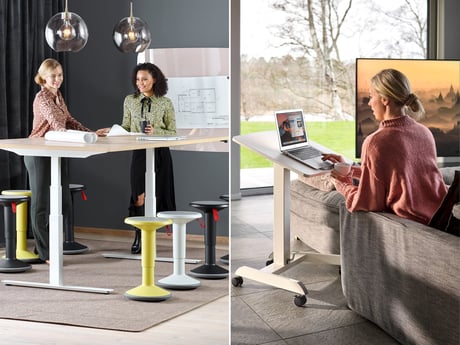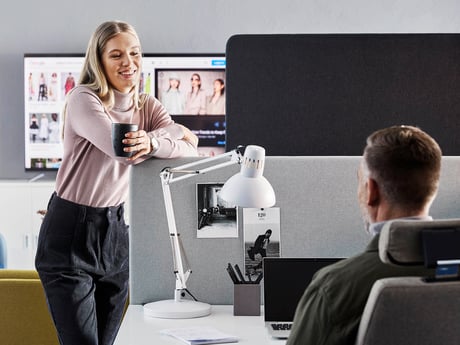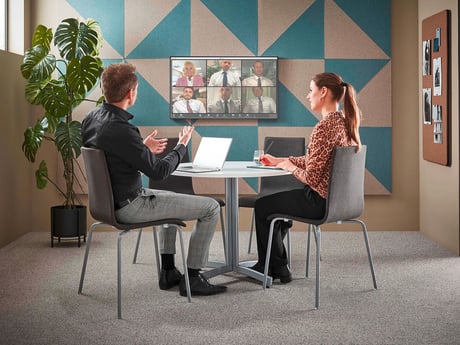- AJ Products UK
- Blog: Tips to Inspire Happiness at Work
- Tips & trends
- The hybrid office is here to stay
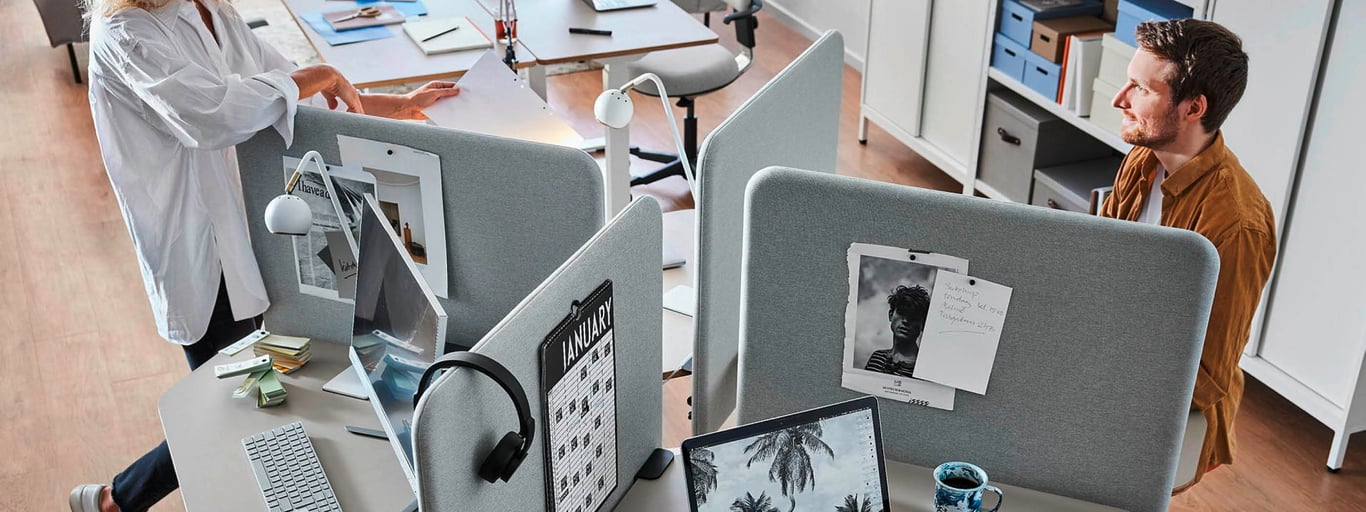
The hybrid office is here to stay
After a long time spent working remotely, it's clear things won't go back to exactly how they were: the hybrid office is here to stay. Pandemic or not, more workplaces are choosing to review their working methods and develop updated policies for a new partially or fully remote worklife.
Opportunities and challenges
Digital meetings and workshops, walk and talk meetings and live webinars are now part of the everyday routine for most office workers. Physical rooms have transformed into digital spaces, the workplace has been moved to the home environment and offices are empty. Suddenly, we are faced with a new future: a changed culture and a way of working that was previously unknown. Now new technology, work hubs and smart digital solutions are making an entrance.
For many, a flexible way of working means reduced stress and the opportunity to get a better balance between work and private life. But sitting at home most of the working day can also reduce creativity and the opportunity for social contact. There is a risk that some people will not leave home at all during the working day. What is the solution?
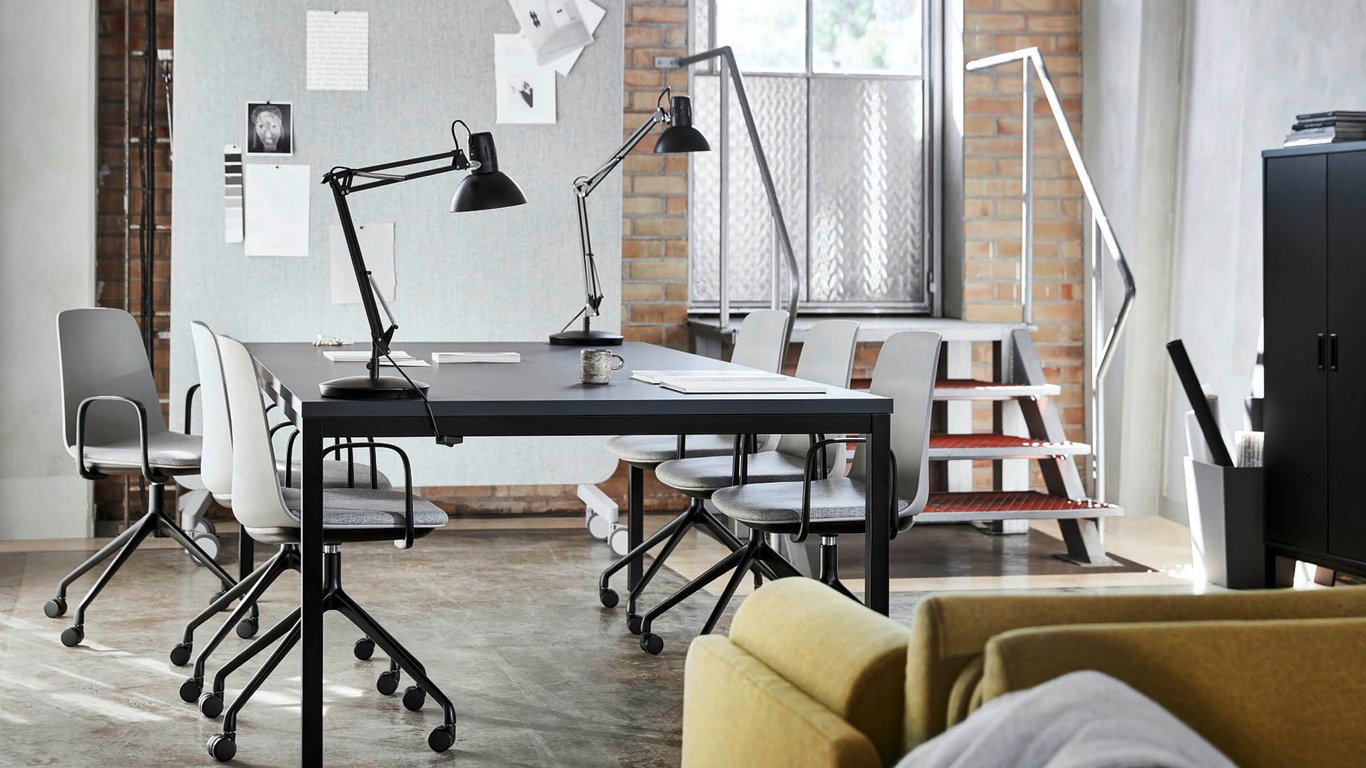
A digital presence
Will we see VR solutions and holograms? Will we work in a digital world with virtual clothes and digital currencies? Probably not quite yet. However, there is potential for hybrid offices to develop. A potential future scenario is that we will see more established co-working spaces and work hubs as a part of the new remote worklife. It is a long-term solution that offers, above all, suburban residents an alternative work environment on days when it is not possible to go into the office.
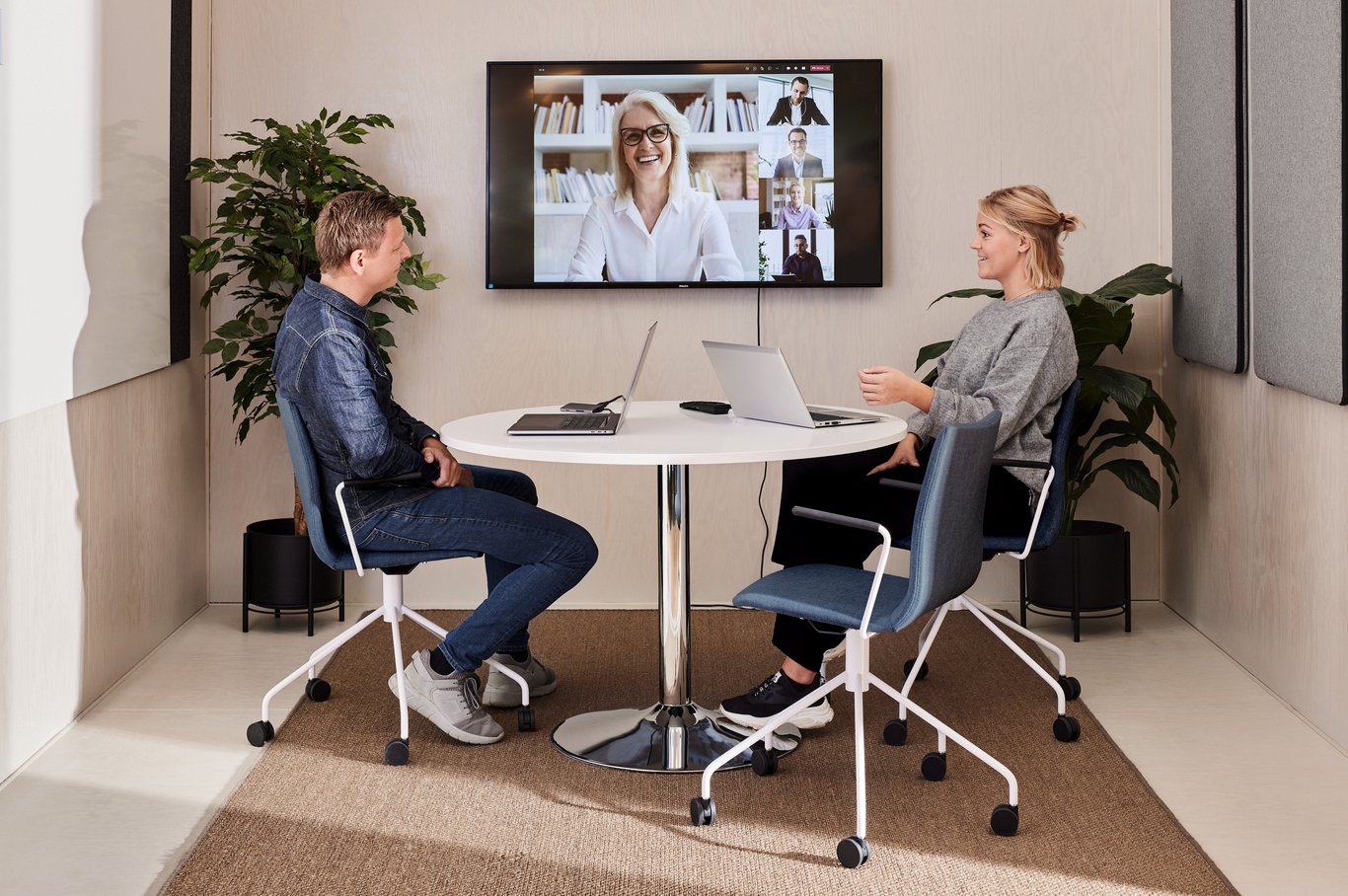
Attract employees
Co-working spaces and work hubs not only mean increased freedom and flexibility for staff, they also provide increased opportunities for employees to expand their business network, allow company offices to become a more attractive prospect on the few days that employees come in and reduce commuting distances for those who live further away, which in turn has a positive impact on the climate. In addition, companies can make savings by reducing their office space. Win-win.
A solution for the future
Perhaps hybrid offices are the solution to improving quality of life and solving the so-called life puzzle. But as with all good things, there are also challenges. What happens to offices that are left empty? What impact does the new way of working have on projects and collaboration between colleagues? Are there any privacy and security issues? And above all, how adaptable do we really want to be? It remains to be seen how hybrid offices will develop but, one thing is for sure, they are here to stay.
Get the latest product launches and offers sent direct to your inbox
Do you want to receive exclusive offers, information about new products and inspiration on how you can improve your workplace? Sign up for our free newsletter and be the first to receive our best offers.Please wait...
*By clicking subscribe, I confirm that I have read the privacy policy.
